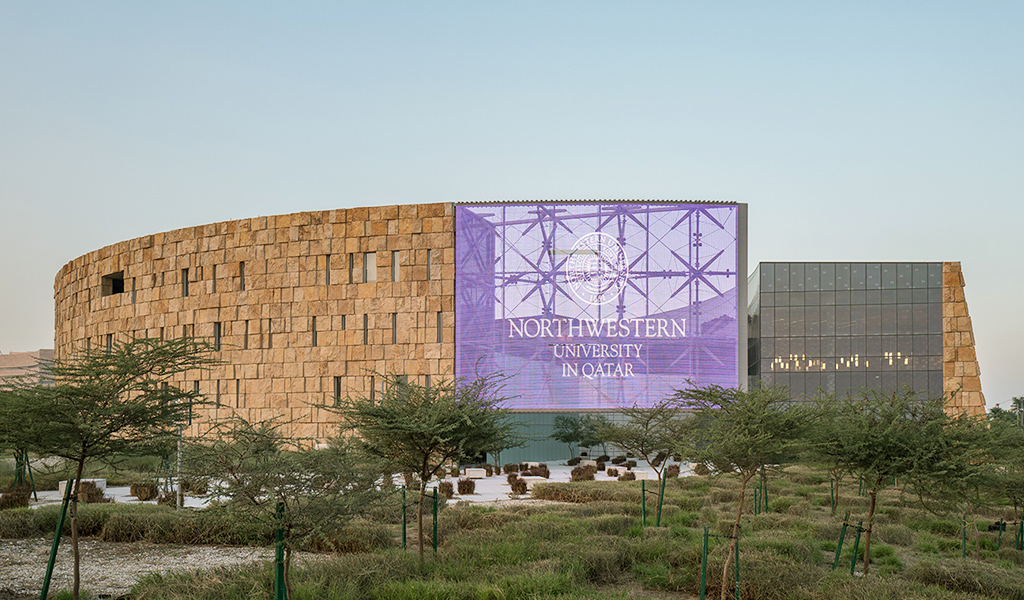Northwestern University in Qatar (NU-Q) has announced three one-day masterclasses as part of its executive education program in sport communication. The program – The Changing Business of Sport and Sport Communications – will serve as a link for professionals who want to begin or enhance a career in sport communication and will focus on media, marketing, and law.
All of the masterclasses will be held at NU-Q’s new building in Education City. The first, scheduled for February 10th is “Media Old and New, and the Transformation of World Sport”; the second, “Sport Law and Governance – The Rules that Regulate Sport Organizations” will be held on February 17th; and the third, “Using Sport Marketing to Influence the Growth of Business and Sport,” on February 24th.
“Over the past several years, NU-Q has broadened its programming to include more courses on sport and the media, which has proven to be very successful. Due to Qatar’s continued growth in this sector, which will require increased numbers of journalists prepared to cover international sporting events, we plan to continue to offer programming that will enhance that growth,” said Everette E. Dennis, dean and CEO.
The first seminar, taught by NU-Q Professor Craig LaMay, an expert in sports journalism, will examine what industry scholars refer to as “mediasport,” its current and future prospects, with special attention to the sports media landscape of Qatar and the Middle East. This will also include innovations in virtual and augmented reality, over-the-top sports content, e-sports, athlete-created media, fantasy sports, and big data.
“With media mega-events like the World Cup and the Olympics moving their competitions from North America and Europe to Asia, including Qatar, these changes have also changed the job of sport journalists, and given rise to new and critical forms of sports journalism that don’t keep score, but rather cover the role sports play in social and economic development, and in shaping international human and civil rights norms,” LaMay said.
LaMay, who is currently on leave from his position as associate professor at Northwestern’s Medill School, is in residence at NU-Q until 2019. In Evanston and Doha, he teaches a class on sport communication – “Sport, Media and Society: Less Than War But More Than a Game."
The second seminar on sports governance and media law will be taught by Fordham University Professor Mark Conrad, author of The Business of Sports, and will discuss, compare, and analyze many of the key legal concepts that govern international sports, an industry that until recently has largely governed itself, with minimal involvement of national authorities anywhere. Conrad is the president of the Alliance for Sport Business, 2016-18; and past president, Sport and Recreation Law Association, 2014-2015.
“Part of Qatar’s sport strategy is to situate itself as a big player in global sports governance,” said LaMay. “The country realizes that with such decisions – like making beIN Sports one of the largest sports media operators or hosting large-scale events like the FIFA World Cup – the local media sector will have to transform as well. NU-Q plans to be at the forefront of good sports media by educating journalists on media law and ethics in the region.”
The last seminar, taught by Northwestern University Professor Candy Lee, will provide a comprehensive overview of the challenges and opportunities in sports marketing, which runs the spectrum from crisis communication on player behavior to ticket-pricing strategies for teams having a bad season. Lee was Teacher of the Year in 2012 for Integrated Marketing Communications at the Medill School at Northwestern and previously served as vice president of marketing at The Washington Post. The course will also consider traditional areas of marketing through the lens of sports and entertainment, and will include video interviews, examples, case studies, and discussion activities.
February’s masterclasses will be offered to individuals with undergraduate degrees and a minimum of one to two years of professional experience. A certificate in Sport Communication will be awarded for completion of all three masterclasses.
Each of the workshops will also include a luncheon speaker.
More information on the program here.

